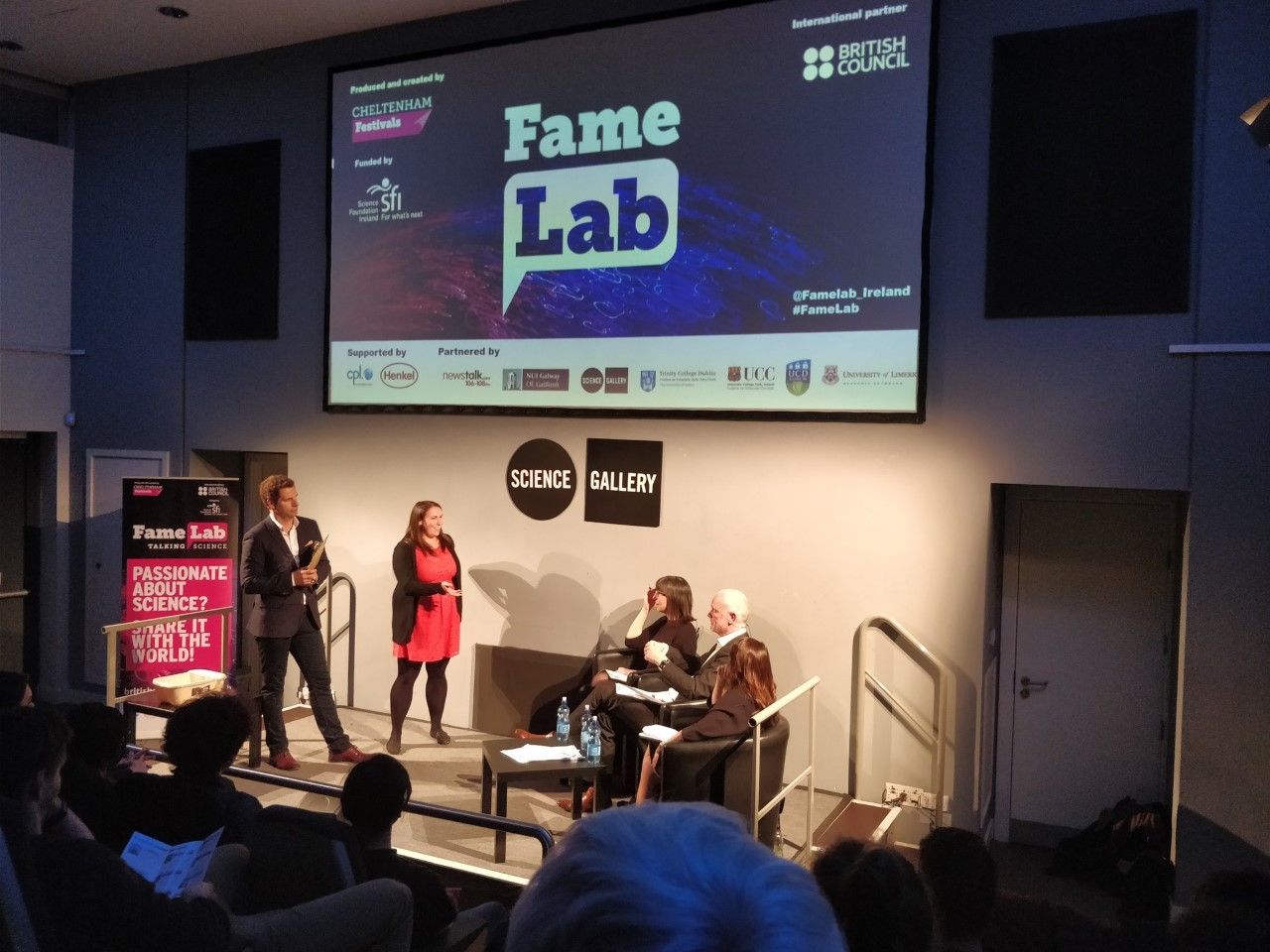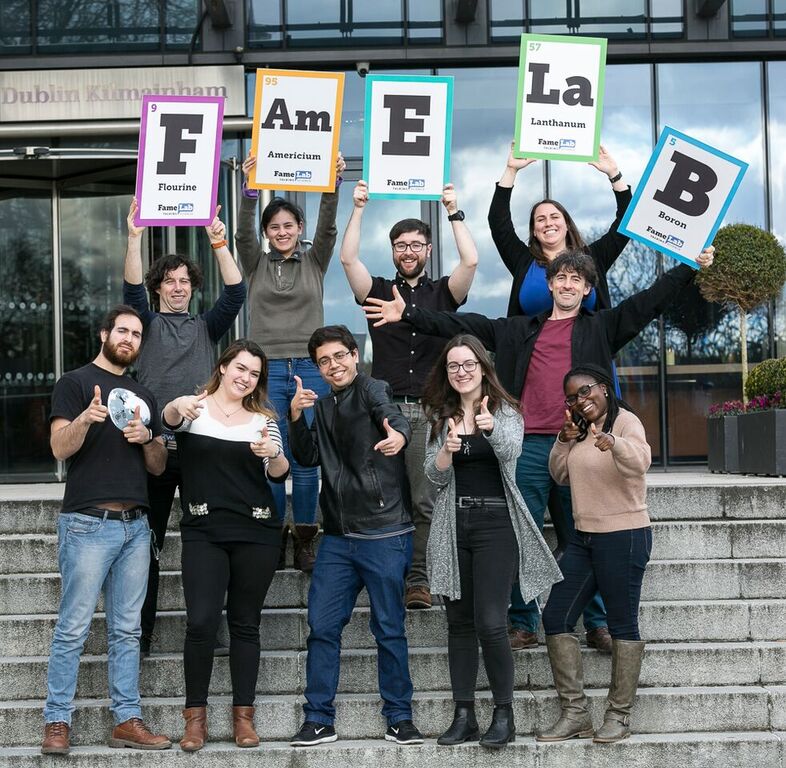As many of you know, the TCD parasitology group is well known for parasitic proselytism. Having tried a few other science communication challenges (PubHD, BioTweeps), I was looking for a new opportunity when I stumbled upon FameLab. This wonderful joint venture of the British Council and over 20 Irish partner institutions actually trains the next generation of science communicators. The competition/talent search is free to enter and is extremely easy to join at Trinity, which hosts its own heat. It seemed like an exciting new way to spread the parasite gospel, so I signed up and worked on a three-minute talk using only props that I could carry on stage. My first talk, on the Carter Center’s program for the eradication of Guinea worm, was exciting to write and prepare.
From the moment I walked into the TCD heat, I was excited. The other speakers were enthusiastic and talked about everything from lasers to dinosaurs (unfortunately no lasers on dinosaurs). I focused on the current efforts to eradicate Guinea worm. Steeling my nerves, I went on stage, spoke about my topic, carried a giant stick, and was selected as the winner of the heat.
After some complications resulting from the early March snowfall, I was eventually selected to participate in the Ireland Final heat. Before this heat, we had the opportunity to participate in a “Scientific Communication Masterclass” organized by the British Council and taught by Malcolm Love and Jonathan McCrea, two outstanding science communicators. The weekend was a total highlight- we learned how to limber up before speaking, how to construct compelling narratives, and how to breeze through interviews (while staying on topic). The finalists also got a chance to know each other and bond. I’m so glad to say I’ve made nine new friends who work in everything from transistors to wound healing.

The finals were held in the Science Gallery. There’s no comparison to the rush of adrenaline that speaking in the finals was- the three minutes of my talk flew by in a flash and every single second was excellent. After a quick chat with the judges, it was over! My talk was a plea to protect parasites. I highlighted work by Sato and colleagues on nematomorph worms, worms that are critical to the energy cycling in Japanese streams. The talks were projected over a livestream and, thankfully, a number of my TCD Natural Sciences colleagues came to support me.
The whole experience was excellent- I can’t recommend it highly enough. If you’re interested in communicating science to the general public, DEFINITELY sign up next year! More info can be found here.
______________
About the Author
Maureen Williams studies the impact of behaviour-manipulating parasites on their ecosystems as a PhD student with Dr. Ian Donohue and Prof. Celia Holland. She’s based in the Zoology Department at Trinity College Dublin when she’s not in the River Shannon. Find out more about her research here:
Website | Maureenannewilliams.weebly.com
Twitter | @modubs11
Research Gate | Profile
LinkedIn | Profile
Google Scholar | Profile

